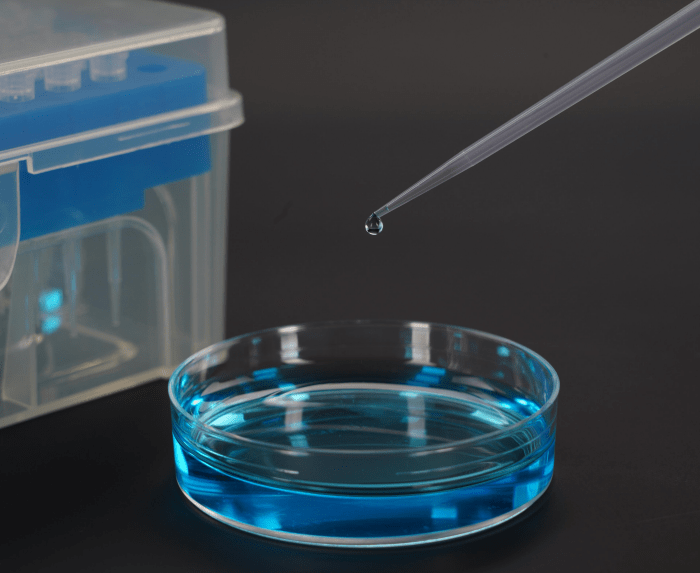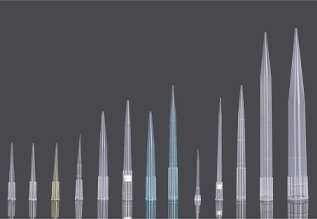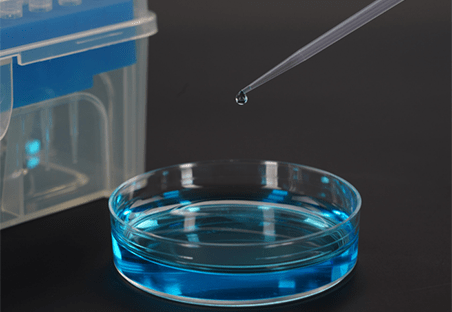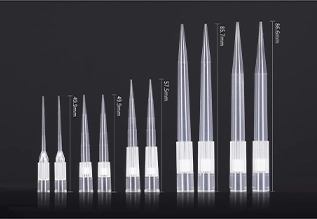Pipette tips are critical to achieving accurate and consistent results. However, with so many options available, such as universal, CLT, and Rainin tips, it can be difficult to choose the right one. Universal Tips are designed to work with a wide variety of pipette brands. They are inexpensive and versatile, but they may have a slightly looser fit, which could affect accuracy in critical applications. CLT Tips strikes a balance between affordability and widespread compatibility with various pipette brands. They are designed for a good fit, resulting in adequate accuracy for most routine tasks. Rainin Tips are specifically designed for Rainin pipettes. They provide the best fit and performance, resulting in the highest level of accuracy and precision. Rainin’s tips are ideal for labs that prioritize these factors. This guide will provide you with more detailed information on the differences so you can choose the best tip for your experiment.

What Are the Differences Among Universal Pipette Tips, CLT Pipette Tips, Or Rainin Pipette Tips?
| Feature | Universal Pipette Tips | CLT Pipette Tips | Rainin Pipette Tips |
| Compatibility | Wide range of pipette brands and models | Many different brands and models of pipettes | Rainin pipettes only |
| Accuracy and precision | May be affected by less snug fit | Generally good accuracy and precision | Excellent accuracy and precision |
| Cost | Typically less expensive than brand-specific tips | More expensive than universal tips | Most expensive option |
| Sterility | Available in sterile and non-sterile options | Available in sterile and non-sterile options | Available in sterile and non-sterile options |
| Filtration | Available in filter pipette tips/non-filtered pipette tips options | Available in filter pipette tips/non-filtered pipette tips options | Available in filter pipette tips/non-filtered pipette tips options |
| Material | Typically made of polypropylene | Typically made of polypropylene | Typically made of polypropylene |
| Other features | May have features such as low-binding or extended length | May have features such as low-binding or extended length | May have features such as low-binding or extended length |
Universal pipette tips are ideal for laboratories that use a variety of pipette brands and models. CLT pipette tips are an excellent choice for labs seeking a high-quality universal tip. Rainin pipette tips are the best option for labs seeking maximum accuracy and precision.

How Do These Different Tips Handle Viscous Liquids?
All three tip types (universal, CLT, and Rainin) can handle viscous liquids to some extent, but there are some differences to consider.
General Challenges with Viscous Liquids
- Increased adhesion: Viscous liquids adhere more to the pipette tip walls, resulting in increased dispensing errors and potential sample waste.
- Slower flow rates: Viscous liquids have a thicker consistency and take longer to flow through the narrow tip orifice, reducing pipetting speed and accuracy.
- Tip clogging: In severe cases, viscous liquids can clog the narrow tip opening, preventing liquid transfer completely.
How Tip Types Address These Challenges
- Material: The standard polypropylene used in most tips can increase adhesion to viscous liquids. Some manufacturers provide low-binding tips made of treated plastics or specialized materials that reduce adherence while increasing dispensing accuracy.
- Tip Design: Wider bore or orifice tips are specifically designed for viscous liquids. They allow for easier flow and reduce the likelihood of clogging. However, these wider tips may not be suitable for all applications requiring high precision in small volumes.
- Technique: Regardless of tip type, proper pipetting technique is essential for viscous liquids. This includes plunging slowly and keeping the pipette vertical during dispensing to reduce shear stress and dripping.
Universal vs. CLT vs. Rainin Tips for Viscous Liquids
- Universal Pipette Tips: These may be sufficient for moderately viscous liquids, particularly when used properly. However, if you’re dealing with highly viscous liquids, consider using low-binding or wider bore options, which may not be available from all universal tip brands.
- CLT Pipette Tips: Similar to universal tips, CLT options may work for moderately viscous liquids. Look for CLT suppliers who provide low-binding or wider-bore CLT tips designed specifically for viscous applications.
- Rainin Pipette Tips: Rainin, as a high-performance pipetting brand, provides a broader range of tip options, including low-binding and wider bore tips designed specifically for viscous liquids. These can be a good option if you want the best performance with viscous samples.

How Do the Sterility Validation Processes Differ Between Universal, CLT, and Rainin Tips?
| Feature | Universal Pipette Tips | CLT Pipette Tips | Rainin Pipette Tips |
| Sterility Assurance Level (SAL) | Potentially Lower | Likely Higher | Very High |
| Validation Documentation | Less Detailed | More Detailed | Highly Detailed (Batch-Specific) |
| Validation Methods | Generic Sterilization (Irradiation/EtO) | Similar to Universal Tips (with Potential Additional Testing) | Rigorous Sterilization (Potentially with Additional Processes) |
These are general trends, and specific practices may differ between manufacturers. Always refer to the pipette tips supplier‘s certificate of analysis or sterility data for the specific tip you intend to use. The type of tip you use for sterility considerations (universal, CLT, or Rainin) should be determined by the requirements of your experiment. Rainin tips may be the preferred choice for critical applications that require the highest level of sterility assurance due to potentially more stringent validation processes.

Conclusion
Pipette tips play a crucial role in ensuring accurate and reliable results. Choosing the right tip for your application can significantly impact the precision of your pipetting. Understanding how different tips handle viscous liquids can save you time and money. Standard tips might struggle with viscous samples, leading to wasted tips, inaccurate dispensing, and frustration. Sterility is paramount in many biological experiments. Knowing the validation processes behind each tip type allows you to choose ones that meet the sterility requirements of your work. This can prevent contamination and wasted experiments. By understanding the strengths and limitations of each tip type, you can tailor your choice to your specific needs. This can lead to more efficient and reliable workflows in the lab. Chongqing Scope Instrument Co., Ltd. is a China laboratory consumables supplier. If you need pipette tips or other lab consumables please contact us.





